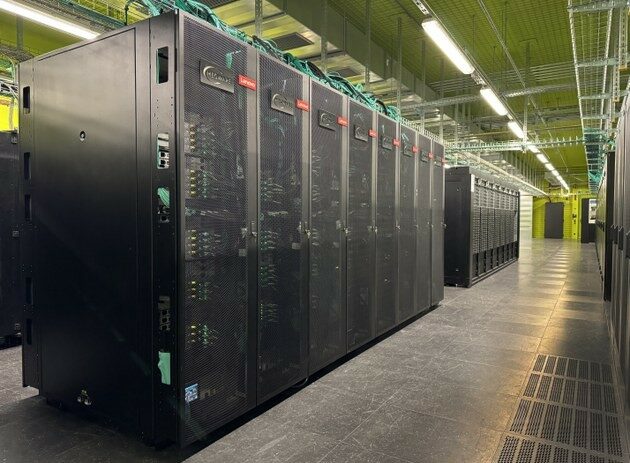|
Landeshauptstadt Dresden - www.dresden.de https://www.dresden.de/en/business/tomorrow-s-home/news/2024/capella-computer.php 09.12.2024 11:18:20 Uhr 22.04.2025 04:22:33 Uhr |
|
Dresden's Capella supercomputer among the fastest and greenest computers in the world

Whether climate modeling, processing large amounts of data, developing new drugs or machine learning: supercomputers far exceed the capacities of conventional computers. Thanks to their immense computing power, they can enormously accelerate progress in important key technologies. Dresden also has such a computer, which ranks very highly in terms of performance and energy efficiency in the new Top500 list.
Every six months, a group of renowned experts compiles a list of the 500 most powerful supercomputers in the world. It provides an overview of current progress and trends in the exciting field of supercomputing. In this year's November edition, Capella from the Center for Information Services and High Performance Computing (ZIH) at TU Dresden occupies a very good 51st place. It ranks third in Germany. The installed supercomputing system achieves a peak computing performance of 38 petaflops - in other words 38 billion calculations per second! It would take a human an incredible 1.2 billion years.
But Capella is not only impressive in terms of computing power: the system also sets standards in terms of energy efficiency and is ranked fifth worldwide in the Green500. The list ranks the systems in the TOP 500 according to their performance efficiency, which is measured in gigaflops/watt. The decisive factor here is therefore not pure performance, but how much computing power a system delivers per watt of electrical power consumed.
And what to do with all that power? Capella is primarily used in the field of artificial intelligence and data analysis. For example, training and improving European language models is an important application scenario for Capella, such as in the OpenGPT-X project. Other areas of application with high performance and storage requirements can be found in medical research, where, for example, machine learning methods are used for cancer diagnosis and the development of new drugs, or in earth system science, e.g. to gain new insights into natural disasters and climate change from earth observation data.






